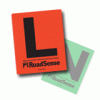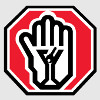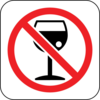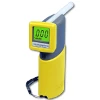What About Zero Drugs?
- Read more about What About Zero Drugs?
- 4 comments
- Log in to post comments
 One of the conditions attached to the driver's license of any new driver in British Columbia's Graduated Licensing Program (GLP) is that the driver must have zero blood alcohol when they are operating a motor vehicle. Of course, the idea behind this is that the driver has enough to worry about while driving the vehicle without adding alcohol to the mix. So, what about drug use?
One of the conditions attached to the driver's license of any new driver in British Columbia's Graduated Licensing Program (GLP) is that the driver must have zero blood alcohol when they are operating a motor vehicle. Of course, the idea behind this is that the driver has enough to worry about while driving the vehicle without adding alcohol to the mix. So, what about drug use?

 I had a question regarding the Designated Driver Programs that are popping up around town.
I had a question regarding the Designated Driver Programs that are popping up around town. Change the Conversation is a national education program on impaired driving in Canada. It contains information about the magnitude and characteristics of the impaired driving problem across Canada, criminal and administrative laws relating to impaired driving, effective programs and policies to reduce impaired driving and the impaired driving system to deal with drunk drivers.
Change the Conversation is a national education program on impaired driving in Canada. It contains information about the magnitude and characteristics of the impaired driving problem across Canada, criminal and administrative laws relating to impaired driving, effective programs and policies to reduce impaired driving and the impaired driving system to deal with drunk drivers. Enforcement action against drivers having a blood alcohol content over 50 mg% (.05) began in 1977 here in British Columbia. In my view, it didn't become a marked deterrent until the recent significant penalty increases imposed by amendments to the Motor Vehicle Act. People are finally making the choice not to drink and drive in numbers that are easily visible.
Enforcement action against drivers having a blood alcohol content over 50 mg% (.05) began in 1977 here in British Columbia. In my view, it didn't become a marked deterrent until the recent significant penalty increases imposed by amendments to the Motor Vehicle Act. People are finally making the choice not to drink and drive in numbers that are easily visible. BC's Responsible Driver Program is required for drivers who have received an Immediate Roadside Prohibition for blowing a fail, having been convicted of an alcohol related driving offence or who have multiple alcohol related driving events on their driving record. The program may also be required because the Superintendent of Motor Vehicles has evidence that the driver has an alcohol abuse or misuse problem.
BC's Responsible Driver Program is required for drivers who have received an Immediate Roadside Prohibition for blowing a fail, having been convicted of an alcohol related driving offence or who have multiple alcohol related driving events on their driving record. The program may also be required because the Superintendent of Motor Vehicles has evidence that the driver has an alcohol abuse or misuse problem. The most significant concern apparent to me with regard to the Immediate Roadside Prohibition (IRP) program in BC is that the police are seen to be the judge and jury at roadside. This has been the case since the creation of the roadside prohibition many years ago, the only thing that has changed is the size of the penalty.
The most significant concern apparent to me with regard to the Immediate Roadside Prohibition (IRP) program in BC is that the police are seen to be the judge and jury at roadside. This has been the case since the creation of the roadside prohibition many years ago, the only thing that has changed is the size of the penalty.
 Mr. Rossi was investigated for driving while impaired by alcohol. He provided a breath sample that registered a fail reading on an Approved Screening Device. Subsequent to that he supplied two samples of breath analyzed at 80 mg% on a BAC Datamaster C instrument. As a result of this, the investigator served Mr. Rossi with an Administrative Driving Prohibition for 90 days.
Mr. Rossi was investigated for driving while impaired by alcohol. He provided a breath sample that registered a fail reading on an Approved Screening Device. Subsequent to that he supplied two samples of breath analyzed at 80 mg% on a BAC Datamaster C instrument. As a result of this, the investigator served Mr. Rossi with an Administrative Driving Prohibition for 90 days. After all the publicity concerning BC having the toughest impaired driving penalties in Canada you decide to drink and drive. You are stopped by police, blow a fail reading (BAC > 100 mg% or .10) on the screening device and are now in serious trouble for the first time in your driving career. What happens under the Immediate Roadside Prohibition (IRP) Program?
After all the publicity concerning BC having the toughest impaired driving penalties in Canada you decide to drink and drive. You are stopped by police, blow a fail reading (BAC > 100 mg% or .10) on the screening device and are now in serious trouble for the first time in your driving career. What happens under the Immediate Roadside Prohibition (IRP) Program?
 Under the new Immediate Roadside Prohibition rules, motorists are able to take a second test on a different device, says RCMP Constable Steve Holmes.
Under the new Immediate Roadside Prohibition rules, motorists are able to take a second test on a different device, says RCMP Constable Steve Holmes.